Will Roosters Kill Hens?
If you’re a proud backyard poultry keeper, you’ve probably heard tales of roosters behaving like feathery villains, engaging in ruthless battles against their own hens. The question that often echoes in the minds of poultry enthusiasts is: “Will roosters kill hens?” It’s time to dig deep into the heart of this matter, sift through the feathers, and lay out the truth for you.
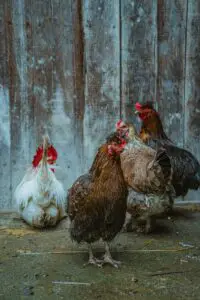

Understanding the Rooster-Hen Relationship
In the wilderness, roosters exhibit a remarkable display of chivalry. Picture this: a vigilant rooster keeping watch over his hens, alerting them to any potential dangers with his resonating crow. This protective instinct carries over into domesticated roosters, but the dynamics take on a slightly different hue within our backyard coops.
The Pecking Order: Who’s in Charge?
Just like any community, hens have their own social hierarchy. It’s a bit like a feathery monarchy with a “pecking order” – where each hen knows her place. Enter the gallant rooster, who plays the role of the royal enforcer, ensuring that the pecking order remains intact. This might involve a bit of posturing, some light pecks, and even a strut that seems borrowed from a grand parade.
Imagine the rooster as the elegant duke overseeing his flock, making sure everyone abides by the rules of the roost. This social structure is vital for reducing chaos and maintaining a sense of order among the feathered citizens.
The Driving Forces Behind Rooster Aggression
Flexing Muscles: Establishing Dominance
Ever witnessed a group of roosters strutting around with feathers fluffed to the max? This is their way of showing dominance. They’re akin to knights of old, donning their shiniest armor and challenging each other to jousts – albeit without the actual jousting! By flexing their feathers and performing grand displays, roosters signal their position in the pecking order.
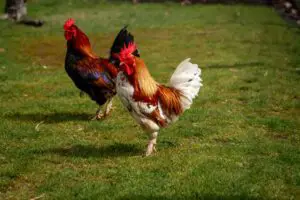

Imagine a medieval jousting tournament, but instead of lances, they use feathered displays to prove their worthiness. This spectacle might seem like a show, but it’s essential for maintaining harmony within the flock.
Defending Their Kingdom: Territorial Instincts
Roosters are born with a strong sense of responsibility, akin to guardians of a kingdom. They protect the sanctity of nesting areas and feeding spots, ensuring their hens have safe spaces to lay eggs and forage for food. This territorial behavior stems from their wild ancestors, who needed to secure vital resources for survival.
Think of the rooster as the guardian of a valuable treasure – the precious nesting grounds and food sources of the kingdom. Just as castles were fortified to ward off invaders, roosters diligently defend their territory against potential rivals.
Dispelling Myths and Unveiling Truths
It’s time to address the elephant (or rather, the rooster) in the room: the myth that roosters take pleasure in harming hens. The reality is quite different. While roosters can exhibit aggression, their motivations are far from malicious.
The Truth about Extreme Aggression
Instances of roosters killing hens are rare and typically arise from exceptional circumstances. An unhealthy or stressed rooster might resort to aggressive behavior, causing harm to the flock. However, this isn’t the norm, and most roosters have a knack for maintaining order rather than sowing chaos.
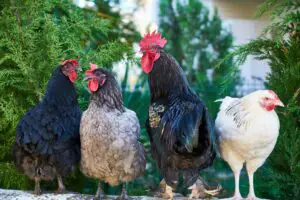

Imagine a rowdy tavern brawl – while a fight might break out in a heated moment, it’s not the regular scene you’d expect to witness.
Identifying Harmful Aggression Signs
While roosters have their reasons for occasional squabbles, it’s essential to be attuned to signs of harmful aggression that might signify a problem within the flock.
Excessive Pecking and Chasing: Keep an eagle eye out for incessant pecking or relentless chasing among the birds. This behavior can escalate, leading to injuries and heightened stress levels among hens.
Isolation and Avoidance: If you notice hens isolating themselves to escape a persistent rooster, it’s a clear indication that something is amiss.
Visible Injuries: Regularly inspect your hens for visible injuries. Injuries can be both physical and psychological, affecting the overall well-being of your flock.
Impact on Egg Production: Stress in the flock can manifest in reduced egg production. If you see a sudden drop in egg output, it might be time to investigate the dynamics within the coop.
Nurturing a Harmonious Flock : Creating a serene poultry community requires a pinch of thoughtful planning and a dash of understanding.
The Space Equation: Cozy, Not Cramped
Just as we humans appreciate elbow room, your feathery friends also value their personal space. Overcrowding can lead to agitated tempers and ruffled feathers. Ensure there’s ample space for each bird to roam, scratch, and spread their wings.
Rooster-to-Hen Ratio: Balance is Key
In the world of rooster-hen dynamics, balance is vital. A recommended guideline is to have one rooster for every eight to ten hens. This ratio helps prevent rivalry from spiraling out of control and maintains a harmonious atmosphere.
Observation: The Secret to Peaceful Coop Living
Regular observation of your flock’s interactions is your golden ticket to maintaining a serene environment. If aggression does rear its head, consider separating the involved parties temporarily until things settle down.
When All Else Fails: Making Tough Choices
In the rare event that a rooster’s aggression becomes unmanageable, you might need to make difficult decisions for the safety and well-being of your hens. Rehoming or, as a last resort, culling the aggressive rooster might be necessary.
Wisdom from the Coop: Real-Life Insights
The vibrant world of poultry keeping is filled with stories of success. Many backyard keepers have mastered the art of harmonious cohabitation by adhering to these principles. Remember, each flock has its unique quirks and personalities, so feel free to tailor these strategies to fit your feathery friends’ preferences.
Conclusion
So, will roosters kill hens? The answer is a reassuring “not typically.” While roosters may engage in displays of aggression, their motives are rooted in maintaining the flock’s equilibrium. By understanding the reasons behind their actions, you can cultivate a peaceful coop environment where hens cluck contentedly and roosters strut their stuff with pride.
In the intricate dance of rooster-hen dynamics, harmony reigns supreme. Remember, it’s all about maintaining a delicate balance, paying attention to the subtle cues, and embracing the wisdom of the coop. As you venture forth on your poultry-keeping journey, may your roost be a realm of tranquility and camaraderie, where the symphony of clucks and crowing forms the heartbeat of your thriving flock.
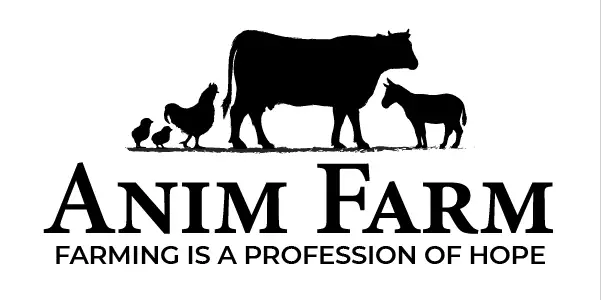
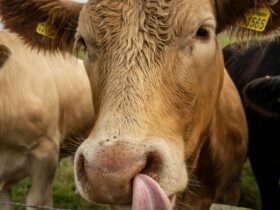
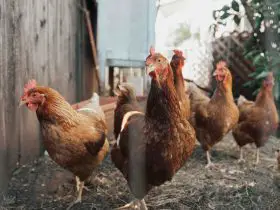

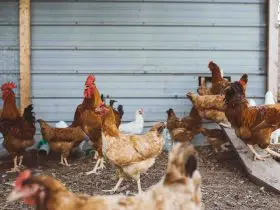
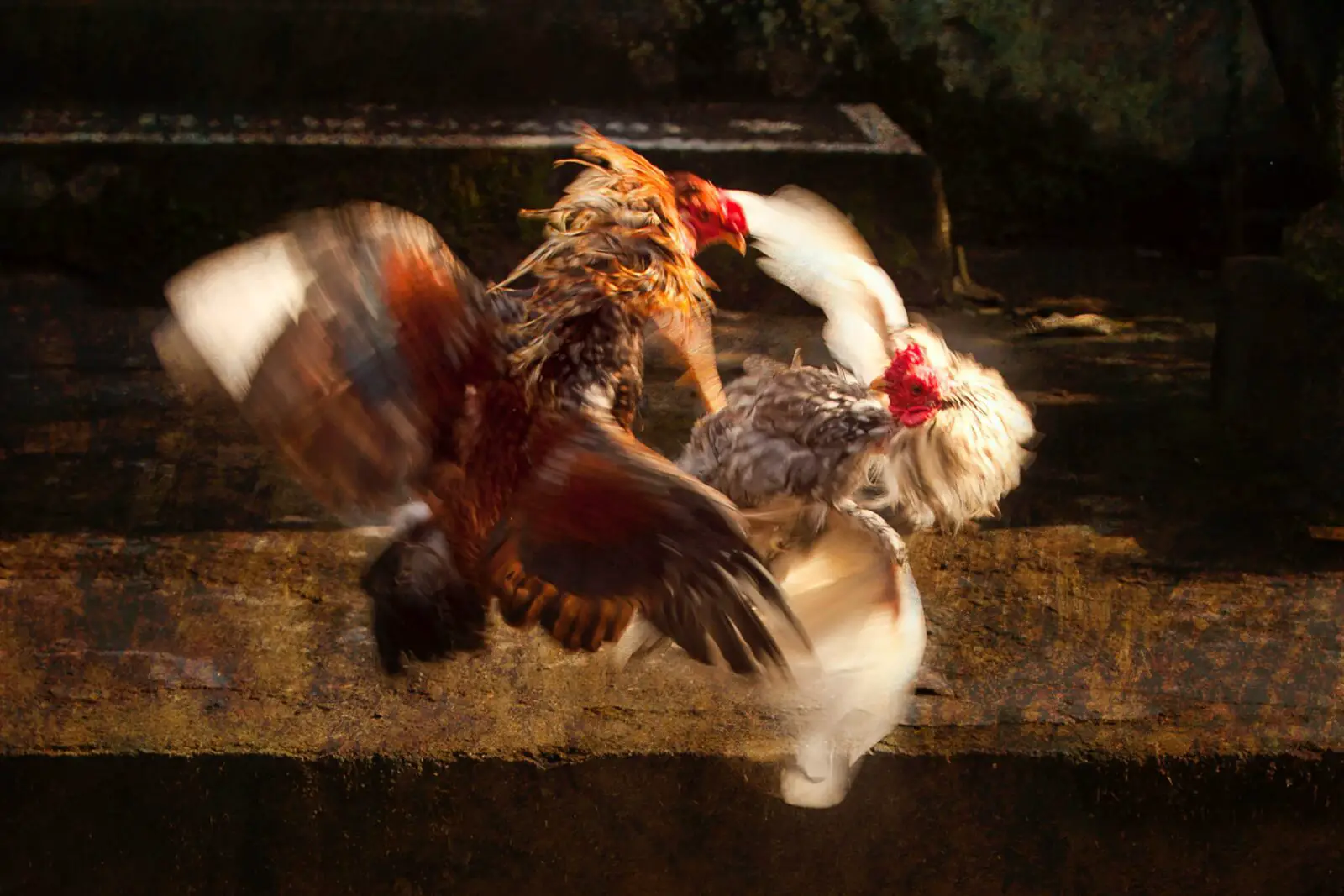
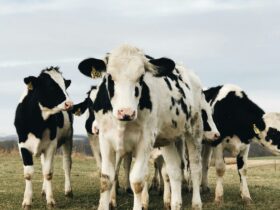

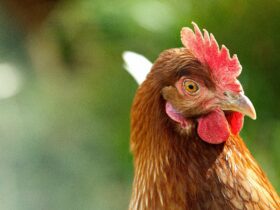

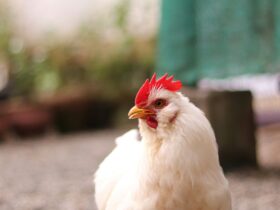

Hello!! Welcome to Anim Farm